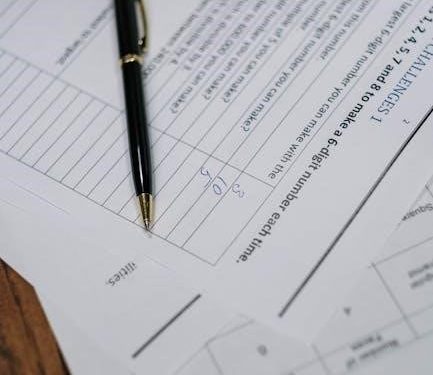
Welcome to the MAP Test guide for 2nd graders! This section introduces the NWEA MAP assessment, a personalized test measuring academic progress. Adaptive and tailored to each student, it helps track growth in reading, math, and other subjects. Regular practice with sample questions and PDF worksheets ensures readiness and confidence for test day.
1.1 Overview of the MAP Test
The MAP (Measures of Academic Progress) test is a computerized, adaptive assessment developed by NWEA. It measures student progress in reading, math, and other subjects, adjusting difficulty based on responses. Designed for grades K-12, it provides detailed performance insights, helping teachers tailor instruction. For 2nd graders, the test focuses on foundational skills, with free PDF practice worksheets available for preparation.
1.2 Importance of MAP Test Practice for 2nd Graders
MAP test practice is crucial for 2nd graders to build confidence and familiarity with the test format. Regular practice helps identify strengths and weaknesses, allowing targeted improvement. Utilizing free PDF worksheets and interactive tools enhances problem-solving skills and reduces test anxiety. Consistent practice ensures students are well-prepared for test day and can showcase their academic abilities effectively.
Structure and Format of the MAP Test
The MAP Test is an adaptive assessment with multiple-choice questions in reading and math, including technology-enhanced items that adjust difficulty based on student performance.
2.1 Understanding the Test Sections (Reading, Math, etc.)
The MAP Test for 2nd grade includes sections like Reading and Math, focusing on foundational skills. Reading assesses comprehension, vocabulary, and literature skills, while Math covers numbers, operations, and problem-solving. Technology-enhanced questions, such as drag-and-drop and fill-in-the-blank, engage students and align with learning objectives. Practice tests and PDF worksheets help familiarize students with these formats, ensuring they are well-prepared.
2.2 Adaptive Nature of the MAP Assessment
The MAP Test is adaptive, meaning it adjusts difficulty based on student responses. As students answer correctly, questions become harder; incorrect answers make them easier. This ensures each test is tailored to the individual’s skill level, providing accurate measures of progress in reading, math, and other subjects. This feature helps identify strengths and areas for growth, offering detailed insights for teachers and parents.

Sample Questions and Practice Tests
Explore sample questions and practice tests designed for 2nd graders. These resources cover math and reading, with interactive problems and PDF worksheets available for download.
3.1 Free 2nd Grade MAP Test Sample Questions
Access free sample questions for the 2nd Grade MAP Test to familiarize your child with the format. These questions cover math and reading, featuring interactive problems and PDF worksheets. They include topics like missing numbers, shortest distances, and reading comprehension. Regular practice with these samples boosts confidence and helps identify areas for improvement. Download additional resources, such as bubble answer sheets, for comprehensive preparation.
3.2 PDF Worksheets for Math and Reading Practice
Enhance your child’s preparation with free PDF worksheets designed for 2nd Grade MAP Test practice. These downloadable resources cover essential math and reading skills, offering targeted exercises to strengthen understanding. The worksheets include problem sets, reading passages, and interactive activities. Regular use helps build familiarity with test formats and improves overall performance in a structured, easy-to-follow manner.
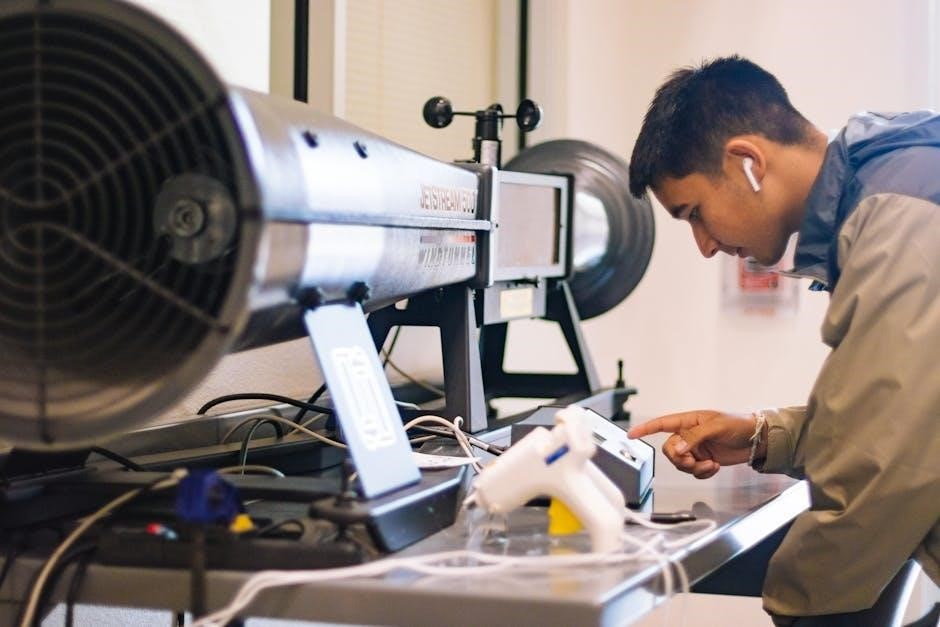
Preparation Strategies for the MAP Test
Effective MAP Test preparation involves consistent practice, focused study schedules, and utilizing online resources like Khan Academy. Parents and teachers can work together to create engaging learning plans tailored to individual needs, ensuring students feel confident and prepared for test day.
4.1 Tips for Parents to Help Their Child Prepare
Parents play a vital role in MAP Test preparation. Encourage daily practice with free PDF worksheets and sample questions. Create a quiet study environment and maintain a consistent routine. Provide positive reinforcement and discuss progress with teachers. Utilize interactive tools like Khan Academy to make learning engaging. Regular review of test format helps reduce anxiety, ensuring your child feels confident and ready for test day.
4.2 Using Khan Academy Exercises for MAP Growth
Khan Academy offers free, interactive exercises aligned with MAP Growth goals, providing engaging math and reading practice. These resources, available online, help students build problem-solving skills and reading comprehension. Regular use of Khan Academy can enhance test readiness and improve academic performance, making it a valuable tool for MAP test preparation and overall learning growth.
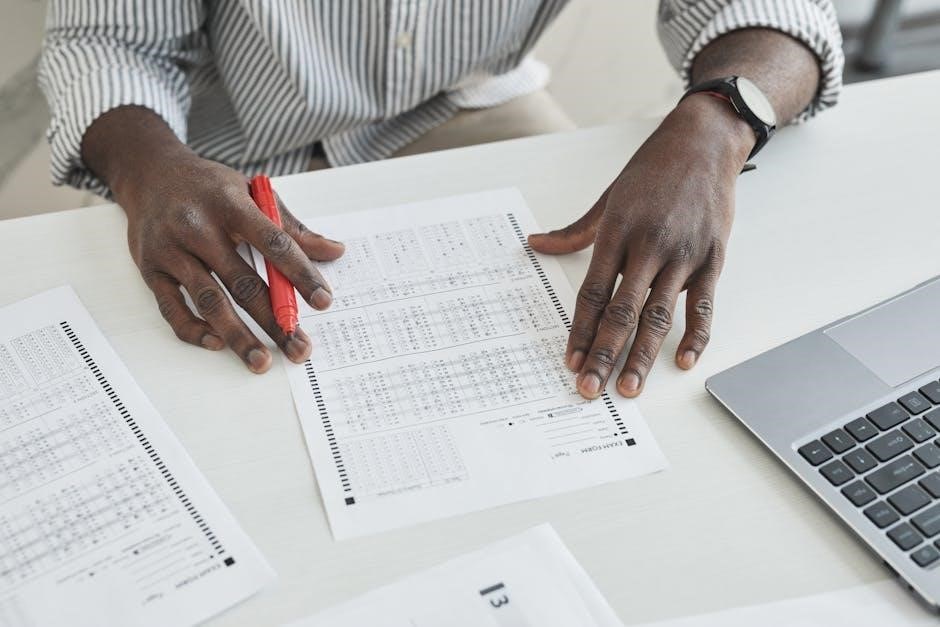
Technology-Enhanced Practice Questions
Engage with interactive MAP test questions that enhance learning through digital tools. These adaptive problems improve understanding and prepare students for the test format effectively online.
5.1 Interactive Problems for Better Engagement
Interactive problems in MAP test practice enhance student engagement by making learning fun and dynamic. These technology-enhanced questions provide immediate feedback, helping students understand their strengths and areas for improvement. Platforms like Khan Academy offer correlated exercises, while PDF worksheets with technology-enhanced features ensure a blend of traditional and digital practice, keeping students motivated and focused on their academic growth.
5.2 Benefits of Digital Practice Tools
Digital practice tools offer numerous benefits for 2nd graders preparing for the MAP test. They provide interactive and engaging learning experiences, making practice more enjoyable. Technology-enhanced questions simulate the actual test format, while real-time feedback helps students track their progress. Additionally, digital tools like Khan Academy exercises and interactive worksheets offer personalized learning experiences, catering to individual needs and improving overall performance. This modern approach to practice makes studying more efficient and accessible.
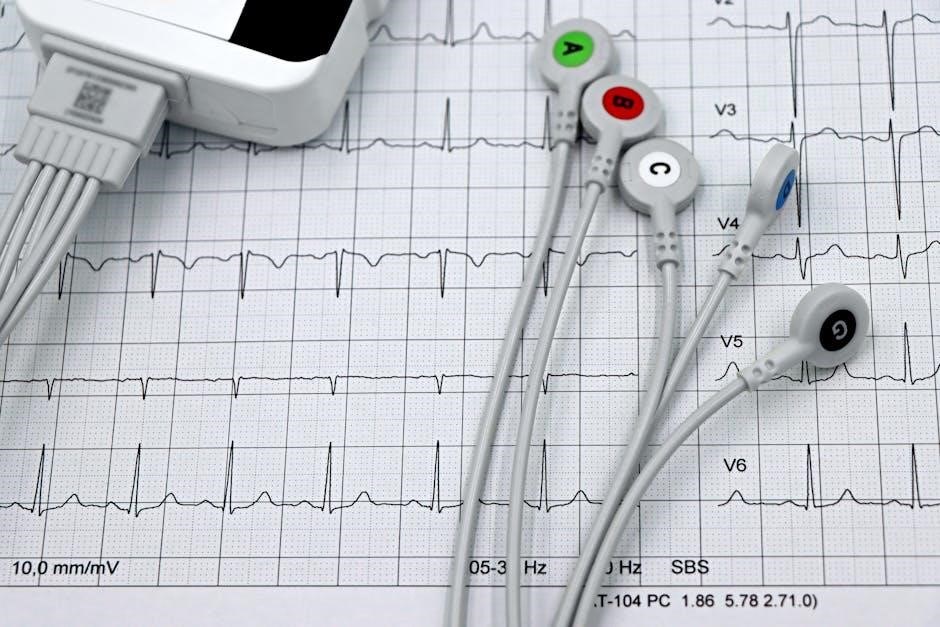
Scoring and RIT Ranges for 2nd Grade MAP Test
The MAP test uses RIT scores to measure academic performance. For 2nd graders, typical RIT ranges are 140–190, reflecting their progress and understanding in key subjects.
6.1 Understanding the Scoring System
The MAP test uses RIT (Rasch Unit) scores to measure student performance. These scores are adaptive, adjusting based on correct or incorrect answers. For 2nd graders, RIT scores typically range from 140 to 190, reflecting their academic readiness. Higher scores indicate stronger mastery of concepts. Understanding the scoring system helps interpret results and track progress over time, providing insights into a student’s academic growth and development.
6.2 Interpreting RIT (Rasch Unit) Scores
RIT scores measure student performance on the MAP test, indicating academic readiness. For 2nd graders, typical RIT ranges are 140-190, reflecting foundational skills. Higher scores suggest stronger mastery, while lower scores highlight areas needing improvement. Interpreting RIT scores helps track growth, identify learning gaps, and inform instruction. Regular practice with PDF worksheets and sample questions can improve understanding and performance, aiding in targeted skill development and progress tracking.

Focus on Math and Reading Skills
Focus on math and reading skills is crucial for 2nd graders. Practice addition, subtraction, shape recognition, and word problems. Use PDF worksheets to improve phonics and comprehension.
7.1 Key Math Concepts for 2nd Grade MAP Test
Mastering addition, subtraction, and basic multiplication facts is essential. Focus on shape recognition, counting money, and solving word problems. Practice place value, time, and measurement skills. Using PDF worksheets and interactive problems helps build fluency and confidence in these areas, ensuring readiness for the MAP test.
7.2 Reading Comprehension and Vocabulary Building
Focus on understanding main ideas and details in texts. Expand vocabulary by learning synonyms and antonyms. Practice identifying characters, settings, and plot in stories. Use interactive sample questions to improve comprehension skills. Regular reading exercises and PDF worksheets help build confidence and fluency, preparing students for the MAP test.

The Role of Practice Tests in MAP Preparation
Practice tests are essential for familiarizing students with the MAP format and content. They help identify strengths and weaknesses, allowing targeted practice. Regular testing builds confidence and reduces anxiety, ensuring students are well-prepared for test day.
8.1 Building Confidence Through Regular Practice
Regular practice with MAP test materials helps students feel more comfortable with the test format and content. By consistently tackling sample questions, especially from 2nd grade MAP test PDFs, students build familiarity, reducing test-day nerves. This routine exposure fosters a sense of mastery, allowing them to approach the actual test with confidence and improved focus.
8.2 Identifying Weak Areas with Practice Tests
Practice tests are invaluable for pinpointing areas where students need improvement. By reviewing incorrect answers, parents and teachers can identify specific skills or concepts that require extra attention. This targeted approach ensures that study time is optimized, addressing gaps in knowledge and helping students focus their efforts effectively to achieve better results on the actual MAP test.

Using Khan Academy for MAP Test Prep
Khan Academy offers interactive exercises aligned with MAP test goals, helping students build skills in math and reading. Its resources are free and easily accessible online, making it a valuable tool for targeted practice and improvement.
9.1 Aligning Khan Academy Exercises with MAP Goals
Khan Academy’s exercises are specifically designed to align with MAP test objectives, ensuring that students practice relevant skills. For 2nd graders, this includes math concepts like addition and subtraction, as well as reading comprehension. The platform offers interactive problems that mirror MAP’s adaptive format, helping students familiarize themselves with test questions. Regular use of these resources can significantly improve test readiness and performance.
9.2 How to Access and Use Khan Academy Resources
To access Khan Academy resources, visit their official website and create a free account. Search for “MAP Growth” exercises to find content tailored to your child’s grade level. Use filters to select 2nd-grade specific materials. Save and organize resources for easy access. Utilize the dashboard to track progress and focus on areas needing improvement. Regular practice ensures mastery of key skills.

Time Management Tips for Test Day
Encourage your child to read instructions carefully and manage time wisely. Teach them to skip difficult questions and return later. Avoid spending too long on one question to maintain momentum. Practice time management with sample tests to reduce anxiety and build confidence for test day.
10.1 Strategies to Complete the Test Efficiently
Teach your child to skim through questions first, identifying easier ones to answer quickly. Encourage them to read instructions carefully and manage their time by allocating specific minutes per section. Use elimination techniques for tough questions and avoid guessing. Practice test-taking strategies like marking and returning to skipped questions. Regular practice with sample tests helps build speed and accuracy, ensuring they complete the test confidently.
10.2 Reducing Test Anxiety
Help your child understand the test format to reduce nervousness. Emphasize that it’s okay to make mistakes. Encourage positive self-talk and deep breathing exercises. Practice visualization techniques where they imagine succeeding. Regular breaks during practice sessions can also help alleviate stress. Building confidence through consistent practice and praising effort, not just results, fosters a calm and focused mindset for test day.
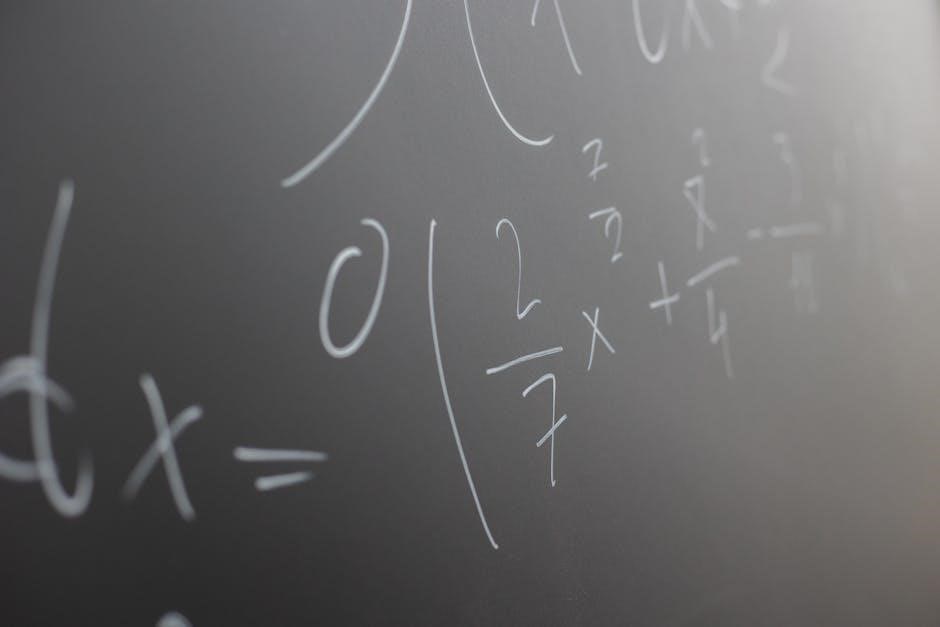
Accessing MAP Test Practice Resources
Discover free PDF worksheets and interactive sample questions online. Visit recommended websites for downloadable resources and guides to help your child prepare effectively for the MAP test.
11.1 Where to Find Free PDF Worksheets
Free MAP test practice PDF worksheets are available online, offering sample questions and exercises for 2nd graders. Visit educational websites or platforms like NWEA and Khan Academy for downloadable resources. These worksheets cover math, reading, and other subjects, providing a convenient way to prepare for the test. Print them out for offline practice or use them digitally to familiarize your child with the test format. Regular practice builds confidence and improves scores.
11.2 Recommended Websites for MAP Test Practice
Recommended websites for MAP test practice include Khan Academy, NWEA, and other educational platforms offering free resources. These sites provide interactive practice tools, sample questions, and PDF worksheets tailored for 2nd graders. They feature technology-enhanced problems and aligned exercises to help students build confidence and improve their skills. Utilize these resources to ensure your child is well-prepared for the test.
MAP test practice is key for 2nd graders to build confidence and improve skills. Regular practice with PDF worksheets and online tools ensures readiness and fosters growth.
12.1 Final Tips for Success in the MAP Test
Consistent practice with MAP test sample questions and PDF worksheets is essential for building confidence. Utilize Khan Academy exercises and interactive tools to enhance engagement. Stay calm, read questions carefully, and manage time effectively. Focus on understanding concepts rather than rushing. Encourage a positive mindset and celebrate progress to ensure your child feels prepared and motivated for test day.
12.2 Encouraging Continuous Learning and Improvement
Foster a love for learning by using MAP test sample questions and PDF worksheets to identify areas for growth. Regular practice with Khan Academy exercises and interactive tools helps build skills and confidence. Encourage a growth mindset, celebrate progress, and provide constructive feedback. Engaging in consistent practice and reviewing results ensures continuous improvement and prepares students for future academic challenges.